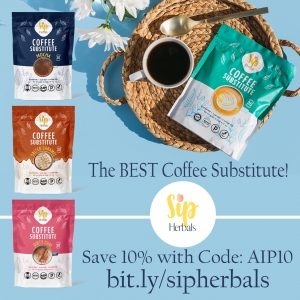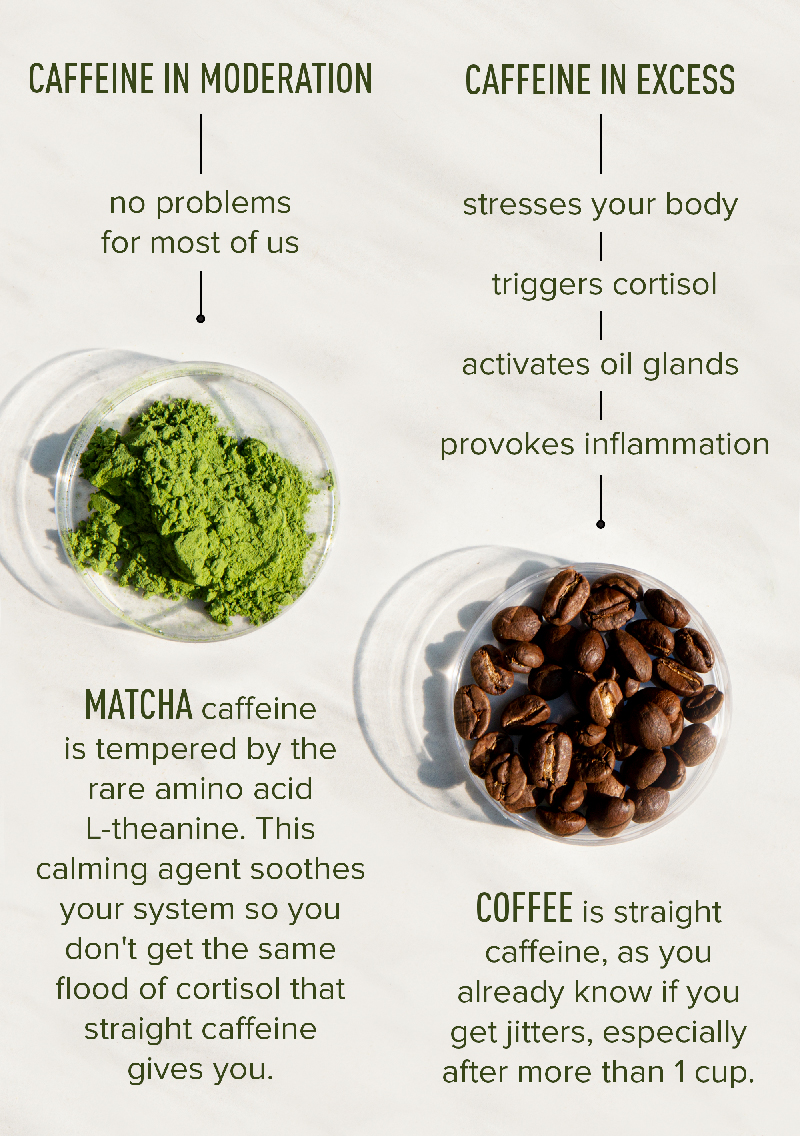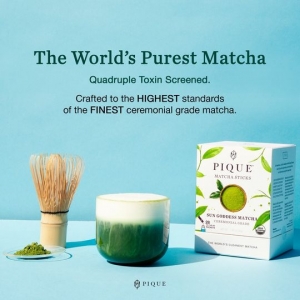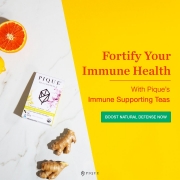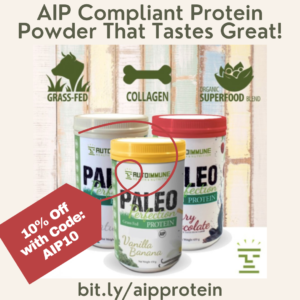This post contains affiliate links. Click here to see what that means.
When you first start out on the AIP it might feel like every recipe contains coconut in one iteration or another. So, what’s the deal? Is it compliant? Is it a nut? Why do so many people seem to be sensitive to it? And what if I’m sensitive to it? To debunk on the confusion on the topic, here’s a little Coconut 101 for you.
What’s The Deal With Coconut?
First of all, coconut is not a nut, it’s a “drupe,” and it does not seem to have the same reactive properties of tree nuts. That said, however, always check with your doctor or allergist if you have a tree nut allergy.
While coconut has many amazing health benefits and lots of beauty uses, it may not be for everyone. As with all foods and ingredients you consume on the AIP, I highly recommend you keep track of what you consume and any reactions/sensitivities you may experience. It is never advisable to consume anything that you body reacts negatively to, no matter how “healthy” that food may be in general. While I won’t go into the details behind sensitivities to coconut, in general, it contains high amounts of inulin fiber and is considered a food high in FODMAPs – highly fermentable and can cause problems for those with digestive issues or bacterial overgrowth.
If you experience coconut sensitivity, it can also sometimes be an issue of overconsumption (too much over time or too much of one thing at one time – I’ve experienced this with coconut milk). It also may be a case of being sensitive to one product and not another – for example some react to coconut milk but not coconut flour or coconut oil or coconut sugar or coconut aminos, etc.. So, be mindful not to completely write off coconut products as they do appear in a lot of recipes. If you are reactive and need to stay away from coconut, don’t despair! While it feels like EVERY recipe on the AIP has coconut in it, that’s simply because your brain is now focusing on something you can’t have. My AIP Recipe Collection Facebook Group at the time of writing this has over 800 coconut free recipes posted and it’s growing every week – click here to join us.
Coconut Ingredients
Since a LOT of AIP recipes call for a variety of ingredients derived from the mighty coconut, it’s a good idea to familiarize yourself with them and their uses so you don’t get confused along the way – I’ll admit, it can get confusing sometimes!
Below are descriptions of the many coconut products on the market. Note that when you see an ingredient name below showing in green, this is a linked the product online at Amazon.com (USA) to help make things simple for you. If you’re in the USA, Canada or the UK I have separate AIP Shops set up for you on Amazon – everything is categorized and YES – there’s a coconut section – click the appropriate country link to be redirected. You can also find many coconut products in our affiliate shop, Fully Healthy (formerly Shop AIP), and enjoy a 10% savings off your first order with our exclusive group coupon code: AIPRecipe – Click to Shop Here.
Coconut Milk/Cream
Before we dive into this one, first let me be clear, whenever we’re talking about coconut milk on the AIP it’s to be additive free – water and coconut only as ingredients. That rules out all of the “coconut beverages” you see in the supermarket refrigerator department and even some of the shelf-stable options – most of these “beverages” are full of ingredients you can’t pronounce, gums and emulsifiers.
So, which brand of coconut milk do I recommend? That has to be one of the biggest questions in the AIP world! The best advice I can give for choosing coconut milk is that it should contain NOTHING but coconut and water – no other additives or ingredients. BEWARE, while a brand of coconut milk may claim to be “organic” that does not indicate it’s additive free – it could very well contain emulsifiers like guar gum, xantham gum or other additives which can harm the gut microbiome, which is why these are to be avoided on the autoimmune protocol … so always watch those ingredient lists folks!
While I will try to keep this list of AIP compliant coconut milk and cream up to date, be sure to double check the ingredients before you buy, because sometimes companies change their ingredients. (The links below are for Amazon USA – click the appropriate link here for your area – there are more available than what you see below – USA, Canada or the UK)
COCONUT MILK:
Aroy-D – in the Tetra Pack only! While this one is the MOST recommended by AIP recipe creators, REALLY watch this one – they’ve been suspect for a while and SOME of their products are cropping up that are NOT compliant)
Natural Value
Native Forest
Trader Joe’s
Cha’s is a great one in Canada
COCONUT CREAM:
Aroy-D
Let’s Do Organic
Trader Joe’s
Cha’s is a great one in Canada
COCONUT MILK POWDER:
With all of the additives showing up in coconut milk these days, coconut milk powder may be a better, safer and easier option – watch labels on this one – some are quite simply dehydrated coconut milk while others contain additives.
Coconut Milk Powder
DIY COCONUT MILK RECIPES:
Coconut milk is quite simply coconut meat blended with water and strained, so it’s easy to make yourself. DIY coconut milk is also the best way to ensure your coconut milk is compliant, so if you have time, why not give it a try!
Milk Options for the AIP
Creamy Coconut Milk
Homemade Coconut Milk
Cream / Creamed Coconut / Coconut Butter or Manna
Coconut Cream vs. Creamed Coconut – this is one that can be confusing in some recipes. Occasionally recipe creators refer to the ingredient by the wrong term, so be careful and consider the purpose/use in the recipe.
Coconut Cream – This is the fraction from coconut milk that separates out when a can of coconut milk without emulsifiers is allowed to sit still or is refrigerated for a while (TIP – I keep a can of coconut milk in the fridge so that when a recipe calls for coconut cream I have a can at the ready – the cream separates better when cold). The cream rises to the top and separates from the milk. It’s different from coconut butter because it’s been strained and contains no coconut fiber, so it’s not as thick as a butter.
Coconut Butter, Manna, and Cream Concentrate/Creamed Coconut are the same thing and can be used interchangeably. These coconut products are the result of dried coconut meat being ground into a very fine pulp resulting in a buttery texture. It can be used in place of nut butters and is often used in AIP baked goods and icing or frosting.
Penny Pincher Note: Creamed coconut concentrate is typically less expensive to buy than the butter or manna. The beauty of creamed coconut is that it usually comes in smaller packets and therefore can be easier to use The small plastic packet is easily warmed in a bowl of water and you massage it to usable consistency (I find coconut butter to be a real pain in the butt to get it mixed properly and it never stays that way – typically it comes in a jar and is solidified – the upper translucent layer being oil and the lower opaque layer being coconut meat – you will need to warm it and mix thoroughly before use. So, don’t be fooled if you get a jar and think it’s just coconut oil – I thought it was when I first bought it because it was in a dark jar and I didn’t know it was separated … silly me!).
This is the brand I use (Grace) – it’s nothing but creamed coconut as the ingredient and it’s easy to find – even in stores like Walmart. If you’re having trouble finding it – try the international foods section – it’s often used in Indian dishes.
You can also make your own, but note that it will never be quite as smooth as a commercially produced option. you will also need to make sure you have a very powerful food processor and keep an eye on it because you could burn out your motor. You can find recipes for DIY Coconut Butter in my AIP Recipe Collection Facebook Group.
Coconut Milk Yogurt/Kefir
Coconut yogurt and kefir are similar in nature – both start with coconut milk and go through a fermentation process – one with probiotics or yogurt starter and the other with kefir starter grains. Coconut kefir is thinner in consistency than yogurt.
At its simplest, coconut yogurt, or coconut milk yogurt, should have basically two ingredients: full fat coconut milk, and active probiotics. While you may be fortunate enough to find an AIP compliant coconut yogurt on the market, more often than not, you’ll need to make your own (you can find recipes for making your own in the AIP Recipe Collection Facebook Group, but from what I’m told it can be tricky – so TRY THIS fool-proof recipe). Some folks suggest that making your own coconut milk yogurt is most successful if you use a yogurt maker, while others suggest an Instant Pot (most of the latest models have a yogurt setting, so watch for that) – be sure to read the various reviews in the group before you decide which method you feel is best for you. At minimum however, you will require probiotic capsules (be mindful that not all probiotics are suitable for everyone – consult your natural practitioner to ensure you’re using what’s right for you) or a recipe may call for a non-dairy yogurt starter culture.
IMPORTANT NOTE: As with all things fermented, despite the “super-food” status they’ve been granted, they are NOT for everyone! Those dealing with certain digestive issues, mold implications, SIBO, Candida, etc. may do best to avoid these all together (at least for a time).
Coconut Oil
Coconut oil is the pure fat from the meat of the coconut and comes in several different varieties based on which processing method was used to extract it. The two basic varieties you’ll run into are refined and virgin – I personally choose virgin (unrefined), as I don’t mind the coco-nutty flavor. If you don’t care for the flavor, you might want to try refined – you can read up on the differences here – Should we choose Virgin or Refined?
Coconut Aminos
Coconut aminos are made from the sap of coconut trees and is the most common replacement for soy sauce in AIP recipes. I use this brand.
Coconut Flakes/Shreds/Chips
Shredded, Flaked, and Chipped coconut are all made from the dried meat of a coconut. You’ll find these ingredients commonly called for in AIP baked goods, granola, to make coconut butter or coconut milk, or simply eaten as a snack or garnish.
Coconut Flour
Coconut flour is commonly used in AIP baking and is simply dried coconut meat that’s been finely ground, still having the fiber intact. The fiber in coconut flour makes if extremely absorbent and in turn it makes baked goods very dry, meaning you really need to stick to AIP baking recipes and not try making untested substitutions.
Coconut Vinegar
Coconut vinegar is made by fermenting coconut water or coconut sap. It has a slightly milder taste than apple cider vinegar and can be used in AIP cooking and things like salad dressings and marinades.
Coconut Water
Coconut water is the liquid, or water, drained out of a fresh, young coconut and it contains carbohydrates and electrolytes, has a low sugar and high nutrient content which makes it a great replacement for sports drinks or just staying hydrated when you’re on the AIP.
Coconut Nectar/Crystals/Sugar
Coconut nectar, crystals and sugar are all natural sweeteners derived from coconuts. Natural or not, sugars are sugars and we need to use these in moderation on our AIP healing journey. You can learn more about natural sweeteners in our dedicated post – click here.
 Meet Matcha!
Meet Matcha!
